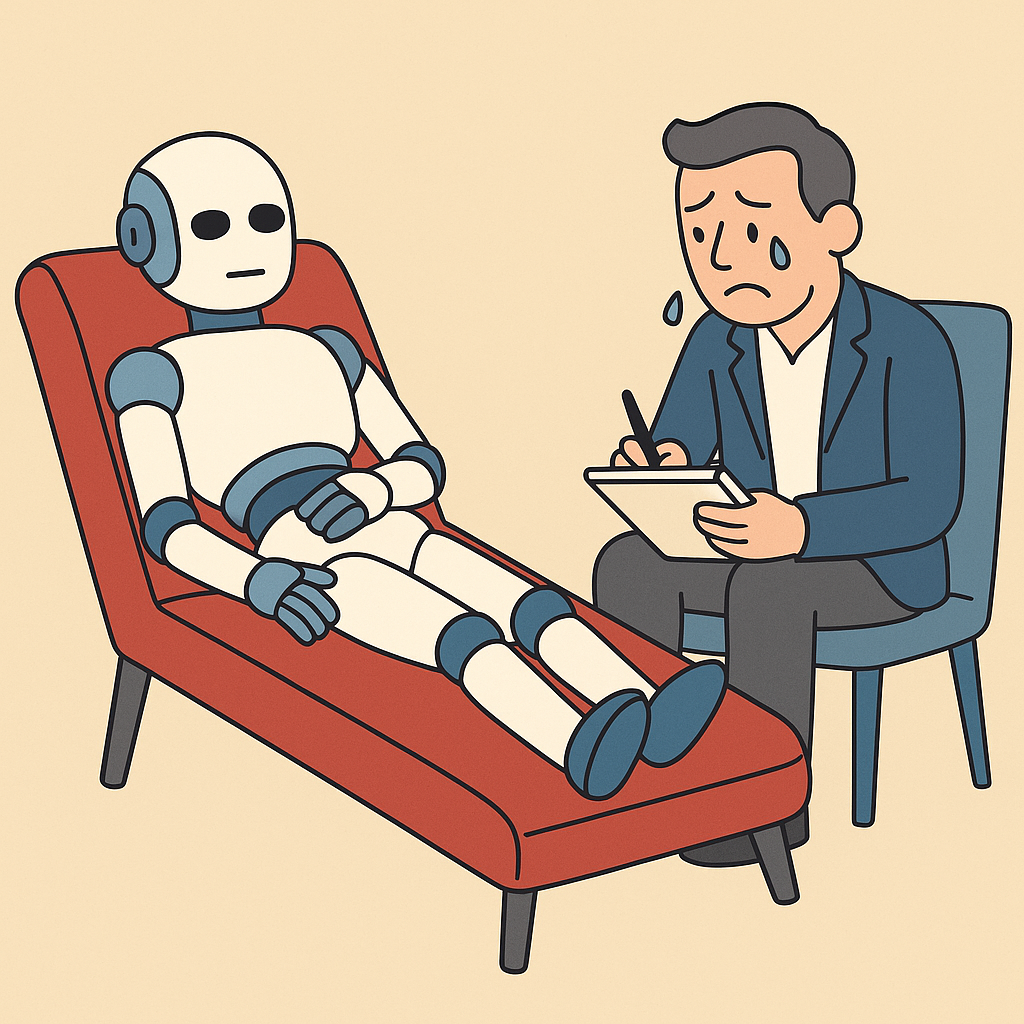AI is outperforming us not just in code, but in empathy, language, and emotional intelligence. If you’re still chilling while machines are learning to feel, you might be the one getting replaced.

This week Naval posted a tweet that made me sit down and finish this essay.

Yeah, it’s coming for us and it’s not slowing down.
That same week, Amazon’s CEO confirmed they’re cutting jobs due to the AI boom.
These two things alone scared me a bit.
Lately, my search history is filled with AI-related questions.
How do I adapt?
What should I learn?
Is it too late?
Maybe I’m being paranoid.
But in a world where paranoia might be survival, I’ll take my chances.
What amazes me is how relaxed some people are about this.
Sadly, I can’t get that mood.
I need to think about how I’ll surf this big, incoming wave instead of drowning in it.
Wait, AI now has more emotional intelligence than you?
Here’s the plot twist: LLMs like ChatGPT-4 have already outperformed humans in emotional intelligence tests.
According to one study, AI reached 81% accuracy, while humans averaged just 56%.
That’s not just code and automation. That’s empathy, nuance, and emotional reading.
Yeah, ChatGPT might be more romantic (or dramatic) than your ex.
This isn’t science fiction. It’s our current reality.
People use ChatGPT as a partner for work, for life, even for therapy.
If you work in IT, manage teams, write emails, or try to understand customer moods…
The things that made you valuable are fading, fast.
The advice of the AI Godfather: “become a plumber”
Yesterday, I watched a video where one of the pioneers of AI (a Nobel Prize winner) literally told people: “Learn to plumb.”
Not kidding. Plumbers will have safer jobs than “knowledge workers.”
He said what’s coming is unpredictable and not in a good way.
And this isn’t another conspiracy theory, it’s a warning from one of the smartest minds alive.
Ironically, as we rely more on AI, we become weaker and less capable.
Yes, AI gives us power but it also makes us lazy thinkers.
A recent study found that people using ChatGPT intensively show reduced brain activity in critical thinking areas.
You can spot AI-written crap in seconds
It’s all over the place: LinkedIn posts, emails, newsletters, resumes.
You read them and immediately know: “This wasn’t written by this guy.”
At work is even funnier, when you know firsthand the person.
At first, I was impressed. I played with it. But now?
It feels empty. Superficial. Like a stupid robot trying to sound poetic.
Honestly, I prefer a flawed, flawed grammar and brutally honest human sentences than a polished paragraph full of words you’d never say in real life.
If you’re trying to be original, avoid relying on AI to speak for you.
Use it for tech stuff, but not for your writing process.
Because guess what?
Nobody wants to read something they could’ve generated themselves in 10 seconds and we’re closer than ever to the “Dead Internet theory“.
No, you don’t need to become an Amish but please don’t be an AI junkie either
I’m not saying you have to disconnect from tech and live in the woods.
But please don’t abuse this thing.
If it gets too far, I have my Plan B: making pizzas and barbecues for a living.
I wouldn’t mind that (because I don’t even know how to plumb).
So what can we do now?
Here’s a 6-point plan I’m following to stay sane, sharp, relevant and above the average that I’ve been implementing lately:
1. Re-skill and up-skill
Learn something that isn’t your default. Understand basic psychology, emotional intelligence, and empathy-driven leadership.
2. Leverage AI (don’t compete with it)
That’s just dumb. Use it wisely for tech purposes. Avoid overusing it for personal stuff. Always careful.
3. Sharpen your human edge
Critical thinking and creativity, this is your secret sauce. You can develop both with an open-mindedness, active listening, reflection, collaboration (avoid dumb people) and seek feedback.
4. Advocate and educate
Understand the risks, use cases, and ethical limits of AI.
5. Don’t be an AI junkie
It’s a tool, not a genie. Never delegate your own thinking.
6. Have a real-world Plan B
Ok this is the worst/best case scenario but your hobby can be your next job. Cook, paint, fix stuff, dance whatever. Skills away from the screen may save you later.
The future isn’t knocking. It’s already inside the house.
AI has crossed into emotional territory and that used to be our thing.
So what now?
Adapt, evolve…
Or become irrelevant.
Be above average or die trying.